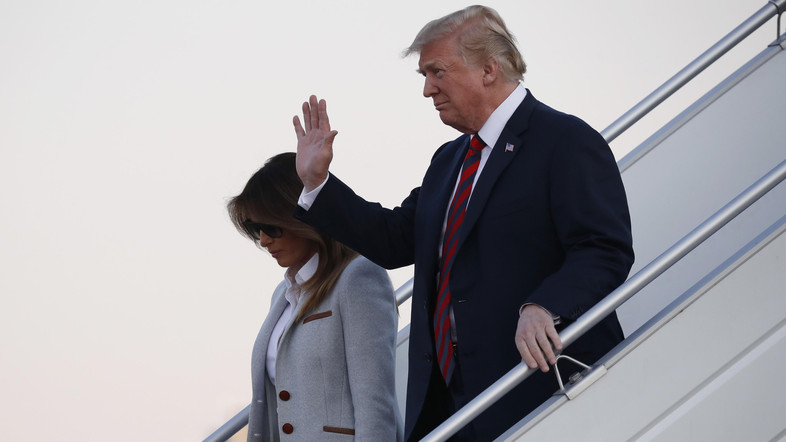Trump and Putin to hold first summit, focus on nuclear arms control and Syria

After months of exchanging long-distance compliments, Donald Trump and Vladimir Putin sit down on Monday for their first ever summit, a potential political minefield at home for the U.S. president but a geopolitical win for his Russian counterpart.
Neither side expects major breakthroughs from the talks in the Finnish capital beyond warm words, an agreement to begin repairing battered U.S.-Russia relations, and maybe a deal to start talks on issues such as nuclear arms control and Syria.
The two men, who have praised each other’s leadership qualities from afar, could also agree to start restocking their respective embassies and returning confiscated diplomatic property after a wave of expulsions and retaliatory action prompted by the poisoning of a former Russian spy in Britain.
Ahead of the summit, both sides talked down the event, however, with Trump telling CBS he was going in with “low expectations” and John Bolton, Trump’s national security adviser, saying on ABC’s “This Week” that the United States was not looking for “deliverables” and that the meeting would be “unstructured.”
Russian Foreign Minister Sergei Lavrov told Russia’s RT TV station that he also had low expectations. He would regard the summit as a success if there was an agreement to merely reopen severed lines of communications across the board, he said.
For Putin, the fact that the summit is even happening despite Russia’s semi-pariah status among some Americans and U.S. allies is a geopolitical win because, in Russian eyes, it shows that Washington recognizes Moscow as a great power whose interests must be taken into account.
For Russia, it is also a powerful sign that Western efforts to isolate Moscow have failed.
But for Trump, whose White House victory was actively supported by 12 Russian military intelligence agents, according to a recent U.S. indictment, and whose entourage is still being investigated for possible collusion with Moscow, the meeting is freighted with domestic political risk.
“We can say confidently that Putin’s political risks are lower than those of President Trump,” said Andrey Kortunov, head of RIAC, a Moscow think-tank close to the Russian Foreign Ministry.
“Putin has less to lose and more to gain because he does not have a domestic opposition, a potentially hostile legislature, and is not begin investigated like Trump. But if you look at the U.S. media they mostly focus on potential risks. Nobody there really believes that any good can come out of this summit.”
A probe over allegations of Russian meddling in the 2016 U.S. presidential election has clouded Trump’s presidency. Trump has denied any collusion with the Russians by his campaign and Russia denies it meddled.
The Helsinki summit is the capstone to a nearly week-long trip for Trump during which he has sown doubts about his commitment to the NATO military alliance, Washington’s so-called special relationship with Britain, and U.S. relations with the European Union that he called “a foe” in trade terms.
Against that backdrop and swirling uncertainty about what Trump might do or say next, his summit with Putin, which will include a one-on-one session with the Russian leader with only interpreters present, has both U.S. allies and U.S. politicians worried lest he make hasty and sweeping concessions.
Al-Arabiya